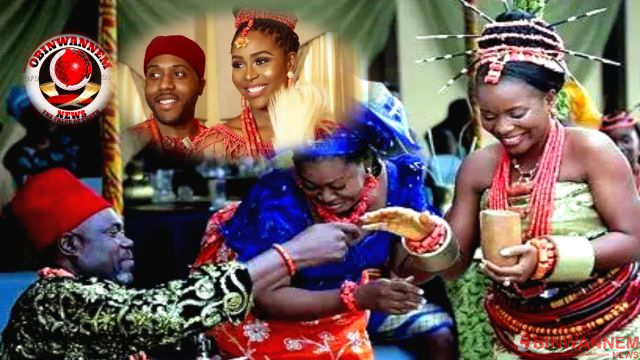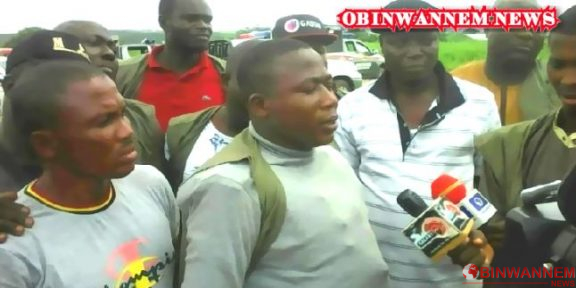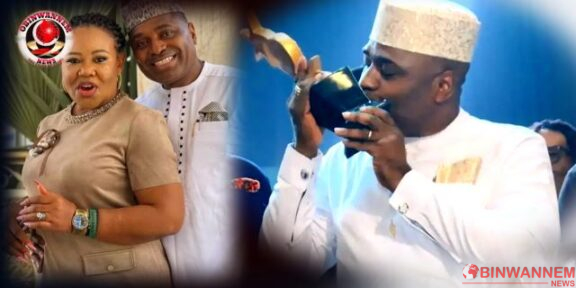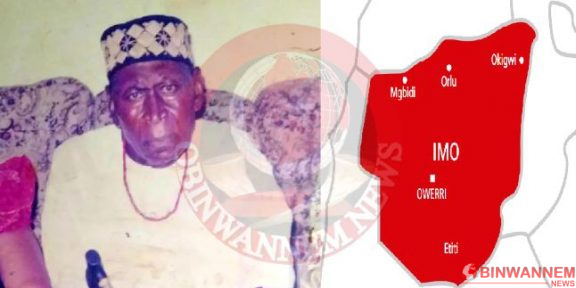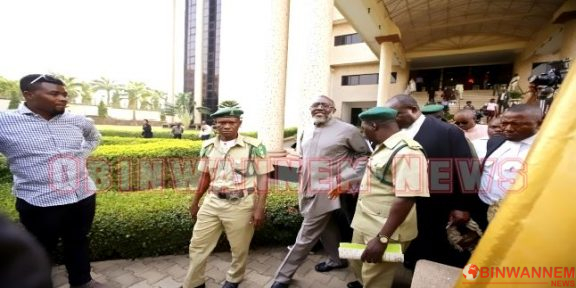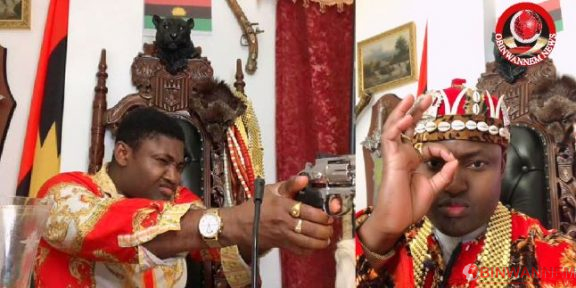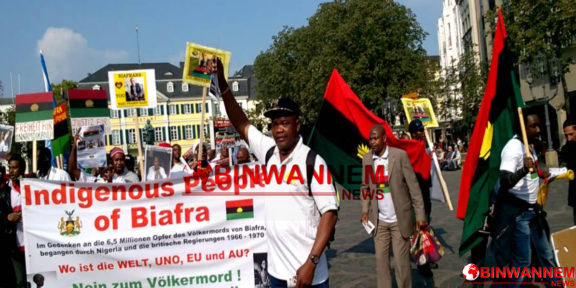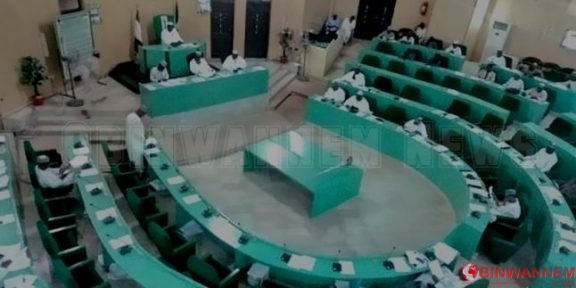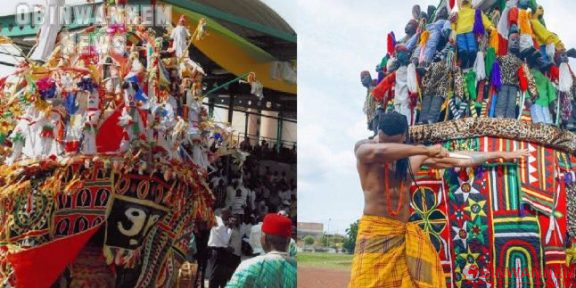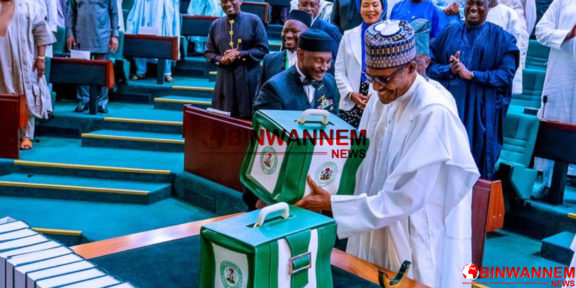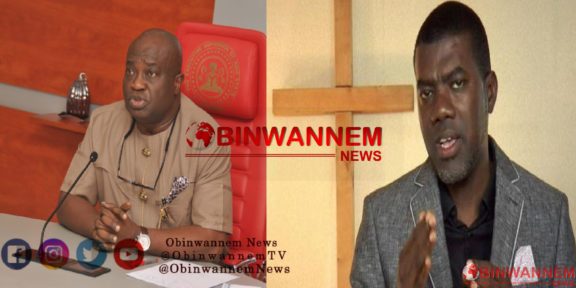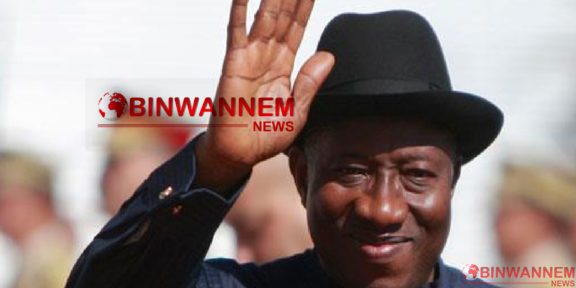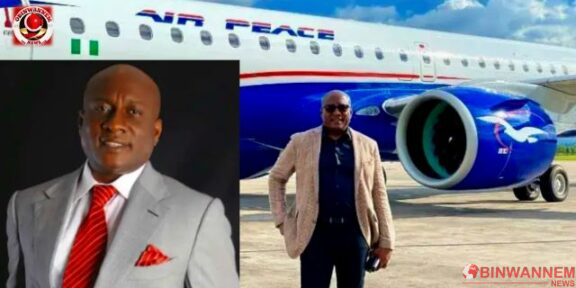Traditional marriage practices reveal a process steeped in the core Igbo culture and tradition with adaptations to their particular sociological circumstances. Traditional marriage in Igbo communities is a social construct that goes beyond just the husband and wife to connect their parents, extended families and kindreds (Umunna).
In the past, traditional marriages were arranged by parents who chose suitable partners for their children after overt and covert background checks of the proposed spouse’s lineage. In modern times, however, young people now make the choices themselves, though parents still counsel and approve of their choices.
Firstly, in Igbo land, when a man meets the woman he wishes to marry, he informs his parents of his intentions. The process is then kick-started with an introductory visit to the prospective in-laws by the man, accompanied by his parents, elderly relatives and a few friends for “Iku Aka” (knocking on the door) or “Iju Ese” (to inquire).
During this visit, the intended in-laws are formally notified of the man’s intention to marry their daughter and seek their answer. The woman’s family will usually ask the man and his family to return at a later date. The ensuing time will be for background checks on the man and his family.
The second stage in the process is after the woman’s family is satisfied with the findings on the man’s family background; a date will be set for another visit by the man’s family. On these visits, the man’s family will usually come along with kolanuts and wines, especially palm wine. Also, the man’s father or an elderly uncle will usually be the spokesman at these visits.
During the second visit, the woman is called in by her family members and informed about the man’s intention to marry her. If she accepts his proposal in the presence of everyone, the drinks are joyfully shared, but if for any reason she does not accept the proposal, the visit and entire process ends.
In the pleasant outcome of a “yes” from the woman, the process advances to the setting of the Bride Price (Ime ego or Ihuafianwanyi). At this stage, the bride price may be negotiated especially if the man and his family feel that the bride price asked for is too high. The family of the woman may set a high bride price considering the accomplishments or educational and work/business status of their daughter or that she has been raised properly by them with virtues any man craves in a wife. On the other hand, the man’s family will bargain by showcasing their son’s sterling attributes that make him the desire of any wife and her family. The negotiations may go on until a price is agreed.
Also at this stage, the culturally required Bride Service is explained to the man. In Igbo communities, Bride Services such as farming, domestic chores and sundry errands are rendered by the bridegroom to a bride’s family as part of the bride price.
Furthermore, at this stage, the family of the woman will hand over a Bridal List to the family of the man. The bridal list contains items that the man is required to present to the woman’s parents, and their extended family/kindred, including young men and girls. Such items will usually include tubers of yam, pots/gallons/jars of palm wine, kola nuts, goats and chickens, wrappers/cloths, jewellery, bars of soap, cartons/crates of soft drinks, etc.
Finally is the very significant stage of Ibu Mmanya Nwanyi or Igbankwunwanyi(Wine carrying). It needs to be noted that modern times have seen some cultural evolution in this stage of the marriage process. In the past, there were about four or five sessions of Ibu Mmanya Nwanyi, mini ceremonies entailing the man’s family, pots and gallons of palm wine to the woman’s family home for her extended family/kindred to drink on scheduled dates.
When the sessions are completed, the bride is then said to be set for “Ina be di” (going to cohabit with the husband) at the next“OnwaAsaa” (the 7th lunar month) festival. During the Onwaasaa festival, all brides due for the final rites in the marriage process, who would have been in the fattening room for 3 lunar months, will be adorned in their best attires, traditionally made-up with camwood paste and Uli body art. It’s usually an all-day festivity with much eating, drinking, and dancing.
Then in the late evening, the maidens of the woman’s kindred will lead her to her husband’s home in a carnival-like procession, carrying Iheidu uno (marriage gift items) from the woman’s family such as cooking utensils, household and baby items, clothes etc. She will be received joyfully by the women of her husband’s kindred and after much merriment; she will retire into her husband’s room to consummate the marriage, thus bringing the marriage process to a conclusion.
In modern times, however, the OnwaAsaa communal festival has been replaced by individual “IgbaNkwunwanyi” (traditional wedding party). This takes place on a scheduled date at the bride’s family compound in her hometown. It’s usually a colourful party atmosphere with lots of food, drinks, traditional dances, and live bands.
The climax of the traditional wedding party is the “wine carrying”. The bride is given a calabash cup of wine by her father or an elderly male member of her family. She is requested to let the guests know who her husband is by searching him out from amongst all the eligible men present and offering a cup of wine to him.
When she finally finds him, she kneels before him and takes a sip of the wine, then offers him the rest to drink. The couple will then both rise to dance and also sit together for the rest of the ceremony as a sign of having been joined as husband and wife. Afterwards, members of each family will pray for the couple. The event will wind down with more dance by the couple and at the end, the bride goes home with her husband.


